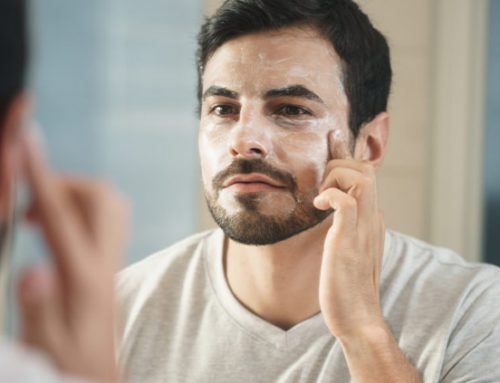For human beings, unlike many other creatures in the Northern Hemisphere, winter can feel like a season for molting. The cold dry air outside combined with the even dryer hot air of central heating sucks moisture out of our skin, leaving it flaky, itchy, and tight.
Unlike molting, however, the process does not end with a brand new layer of skin; it just continues to get more red and irritated. That is, unless you take the opportunity to step up your skincare. With a little diligence and a few simple steps, winter might even turn into your skin’s best season.
Your skin is the largest organ of your body and its first line of defense. As such, it can take a beating from the environment, making your skin more vulnerable over time. As we age, our skin loses fat, becomes dryer and takes longer to heal. A lifetime of sun exposure further increases dryness, age spots and wrinkles. In other words, the older you get, the more important it is to take care of your skin, especially during the winter.
Perhaps you are one of the lucky ones: you are reading this while young, or you learned to take care of your skin at an early age. If not, don’t worry, it is not too late to learn what works best to improve the look and feel of the skin you have now.
Identify what is drying out your skin
The best first step toward healthier skin is to identify the things that dry out your skin the most. Since it’s the driest season, winter may be the best time to figure this out. Here are some of the most drying factors according to The National Institute on Aging:
- Drinking too little liquid
- Sun tanning (includes tanning beds)
- Dry air
- Smoking
- Stress
- Certain medications
- Medical conditions like diabetes and kidney disease
Most of these factors have a remedy: for some, like using sunscreen to protect your skin, you can start right away; for others, like handling stress or quitting tobacco, professionals can help; and for still others, like addressing medical conditions or issues with medications, you must work with your physician.
There are also certain products and environmental contributors that you may not realize are drying out your skin. According to the American Academy of Dermatology, here are some hidden agents to watch out for:
- Deodorant soaps
- Fragrances
- Non-hypoallergenic laundry detergent
- Rough fabrics like wool
- Sleeping next to a heat source
- Handling chemicals or greases
- Alcohol-based toners
- Long hot baths or showers
- Exfoliants like alpha hydroxy acid (AHA)
- Clay Masks
- Lip balms (if they tingle when you put them on)
Knowing just what is most drying for your skin, and then doing something about it can give you the jumpstart you need to start healing your skin.
Add moisture back into your skin
Your skin naturally produces its own moisture in the form of oils, even as you age (though less). Many of the products mentioned above as well as long hot showers or baths, can dissolve and strip your skin of those oils. No one is recommending that you stop your personal hygiene. Instead, minimize exposure to these product and keep hot water exposure to under ten minutes. Then replenish moisture right away.
Experts at the American Academy of Dermatology recommend closing the bathroom door to keep steam in, blot skin to dry, and then apply moisturizer within a few minutes of bathing. They also say, “Don’t let a 12-hour period go by without using some sort of treatment or product on your skin (sunscreen counts).” Ointments and creams tend to be less irritating and more moisturizing than lotions. Look for the following soothing and moisture-locking ingredients:
- Olive oil,
- Jojoba oil
- Shea butter
- Lactic acid
- Urea
- Hyaluronic acid
- Dimethicone
- Glycerin
- Lanolin
- Mineral oil
- Petrolatum
The American Society of Plastic Surgeons recommends Vitamin A (retinol), which includes the following derivatives: Retinoids, retinoic acid (Retin-A), tretinoins, retinaldehydes and retinyl. These products can increase collagen and cell turnover and decrease cell debris and fine lines.
Dr. Slack recommends Retin-A treatments for reversing sun damage. You can also reverse skin damage with non-invasive skin treatments like Venus Versa® for pigmented areas or Venus Viva® for overall improvement of skin texture and tone. These treatments are ideal for fall and winter because they require you to stay out of the sun.
It is never too late to start taking care of your skin, and these steps can take you a long way toward softer, more youthful skin. Why not start now. If you are interested in learning more about next steps in skin care, like non-surgical rejuvenation, schedule a no-cost consultation with Dr. Slack today.





